Outcomes
Investigating modularization and microcredentials form the learners' perspective
Examining the learning perspective (learning ambitions, preferences, requirements, expectations, study-work-life balance) on modularization and microcredentialing to better adapt microcredential formats and institutional learning services to the specific characteristics of the CEPD learner. Microcredentials should stimulate learning aspirations and satisfy students' study-work-life balance to engage them in CEPD and better respond to their needs, preferences and available study time. Institutional learning services for CEPD should inform them about the range of lifelong learning opportunities, stimulate their learning aspirations and guide them to seize successive opportunities throughout their lives.
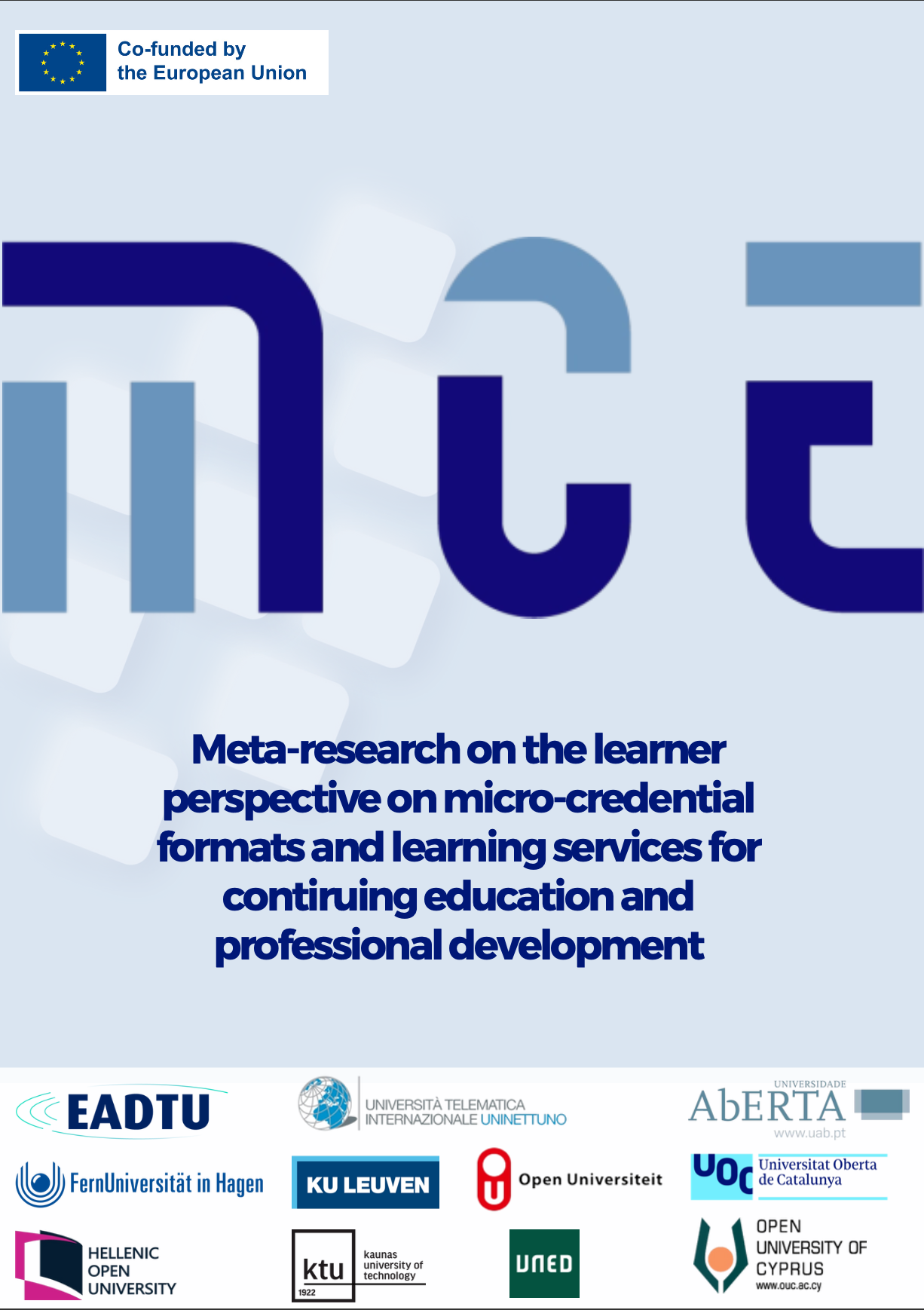
Meta-research on the learner perspective on micro-credential formats and learning services for continuing education and professional development
The deliverable presents a systematic literature review investigating the learner's perspective towards micro-credentials format, taking into consideration the research carried out in the last five years. After applying the PRISMA methodology, a total of 48 papers were included. Check out the document to find our results.
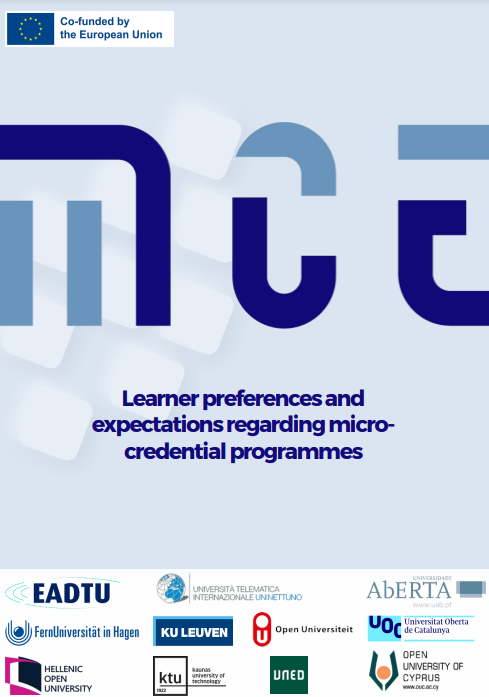
Learner preferences and expectations regarding micro-credential programmes
This report expands existing research on the few emperical data generated on the learners needs and expectations for micro-credentials by providing evidence on learners' expectations and preferences from learners of nine European countries, focusing on themes hitherto unexplored, such as preferences for learning modalities, duration of learning, types of certification and willingness to pay for certification.
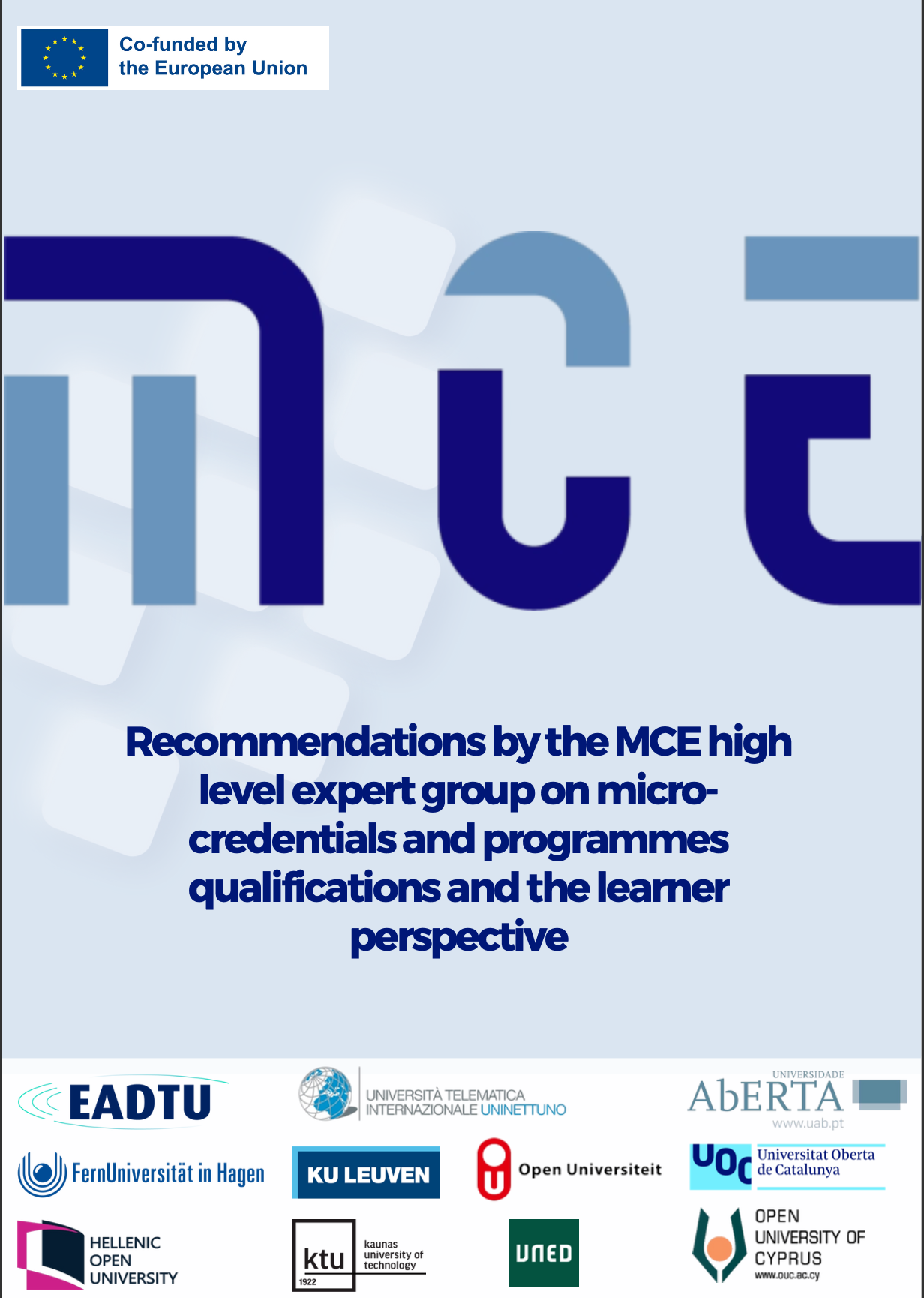
Recommendations by the MCE high level expert group on micro-credentials and programmes qualifications and the learner perspective
This document meticulously investigates learners' motivations and preferences concerning micro-credentials, addressing a noticeable gap in understanding the learning needs associated with these new learning formats. It synthesizes findings from a systematic literature review, focus group studies, and surveys, emphasizing the learners' perspective on micro-credential formats and learning services for continuing education and professional development.
Institutional leadership and microcredentials
Supporting university leadership in the development and progressive implementation of transformative institutional policies, strategies and institutional preconditions for forward-looking CEPD and microcredential programs and qualifications, in response to the demands and expectations of learners, the economy and the society. By doing so, university leadership will be empowered to develop evidence-based transformative institutional policiesfor CEPD and microcredentials in the context of emerging national and EU-level policies and frameworks over the next three years (cfr. the EC Recommendations onmicrocredentials). MCE will provide reports, recommendations and blueprints for institutional development. This also includes the possible development of extension schools or other designated structures and learningservices for coordinating and scaling up CEPD and microcredential provisions.
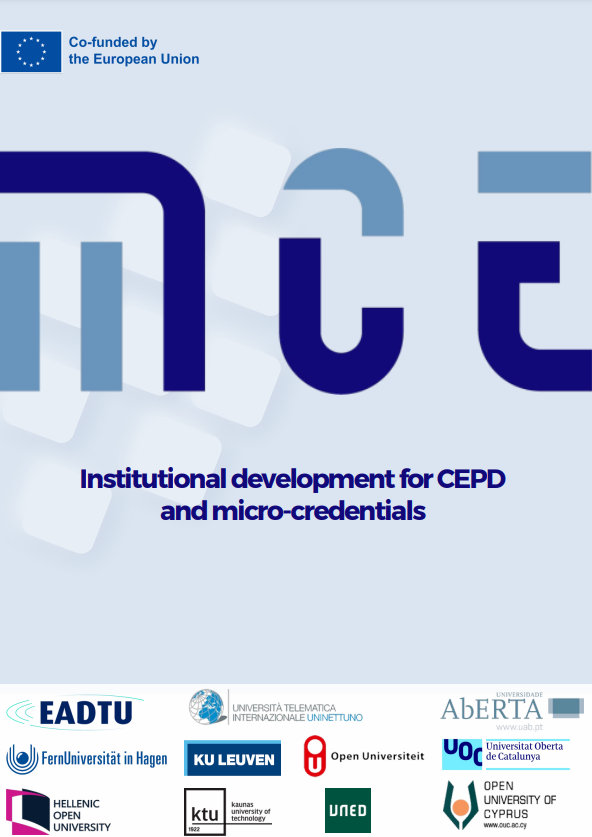
Institutional development for CEPD and micro-credentials
This report offers a comparison of institutional policies, strategies, and frameworks for CEPD and micro-credentials considering new perspectives on the transformation of higher education. It complements the findings of Weiß et al. (2023), which was based on the same survey, but with a different emphasis, namely on denominations for and characteristics of existing shorter, non-standard learning programs within the partnership and on the institutional perspective on possible drivers (motivations) of students engaging in micro-credentials (Weiß et al. 2023).
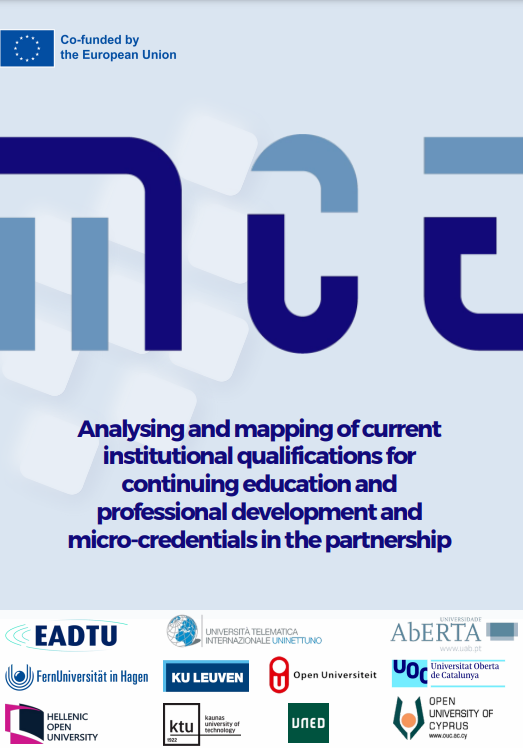
Analysing and mapping of current institutional qualifications for continuing educuation and professional development and micro-credentials in the partnership
In a rapidly changing world, lifelong learning and flexible learning pathways are crucial. More and more small learning opportunities, so-called micro-credentials, are being developed across Europe and the world. Yet, to date, a common definition and standards to describe, design, and recognize micro-credentials are missing. What is more, higher education institutions act within very different contexts and may aim to achieve various objectives relating to micro-credentials. The ten project partners were asked to fill out a comprehensive questionnaire on institutional, quality, and funding policies regarding micro-credentials. In this deliverable, we map and analyze existing institutional qualifications for continuing education and professional development (CEPD) and depict learners’ preferences based on the data collected on the institutional level. These preferences are labeled as 'assumed' in this document because learners were not part of the study.
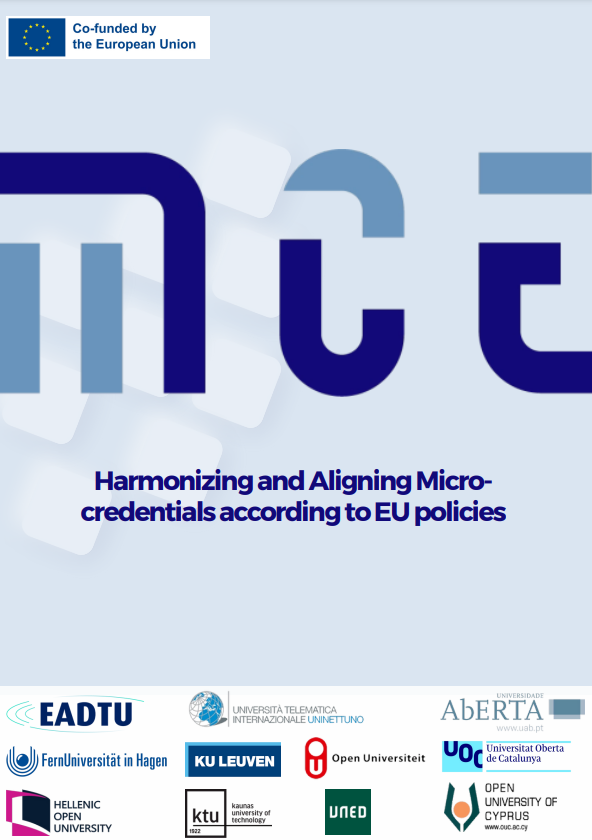
Harmonizing and aligning micro-credentials according to EU policies
Harmonizing and aligning institutional qualifications in interaction with developments regarding national and European frameworks on CEPD and microcredentials

Building an insitutional ecosystem for continuing education
Peer learning activity on student services for CEPD end microcredentials; organizational models, eg extension schools; relationship with external stakeholders (professional organisations, public and private sectors, social partners; business models for microcredentials.
HEIs experimentation with micro-credentials
Testing the design and development of modularization and micro-credentialing involving all actors through case studies and pilots, responding to the demands and expectations of learners, the economy and society. To test educational changes, institutional stakeholders conduct a "reality check" together through case studies and pilots in which each of them takes their specific roles as designer, expert advisor, organizer, administrator or leader. These exercises will have an impact on how all actors will see their role in developing and organizing microcredentials and how this can be further scaled up in line with university policies. The aim is to strengthen and test modularization and microcredentialing according to the agenda and context of each institution.
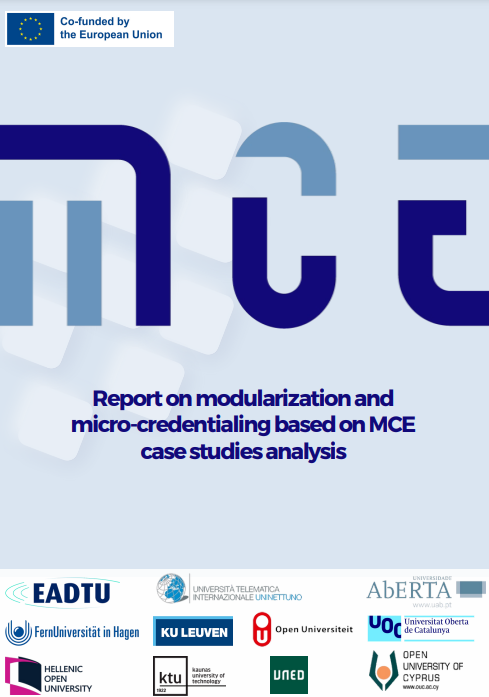
Report on modularization and micro-credentialing based on MCE case studies analysis
This report presents the methodological approach, data collection tools, and key findings from a large-scale evaluation involving 705 respondents across 22 pilot courses delivered by MCE partner institutions. Stakeholders included students, professors/course designers, higher education institution (HEI) managers, and external stakeholders (e.g., employers and professional organisations).
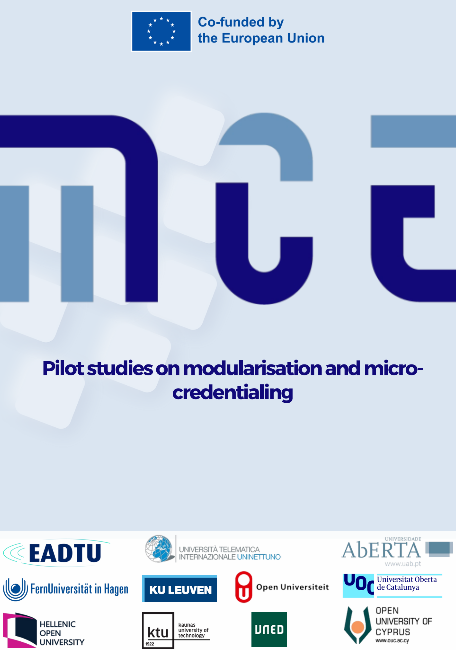
Pilot studies on modularisation and micro-credentialing
Based on the recommendations derived from the “Report on case studies on modularization and microcredentialing”, the WP leaders have guided the partners to identify the best format to experiment microcredential formats with their pilots.
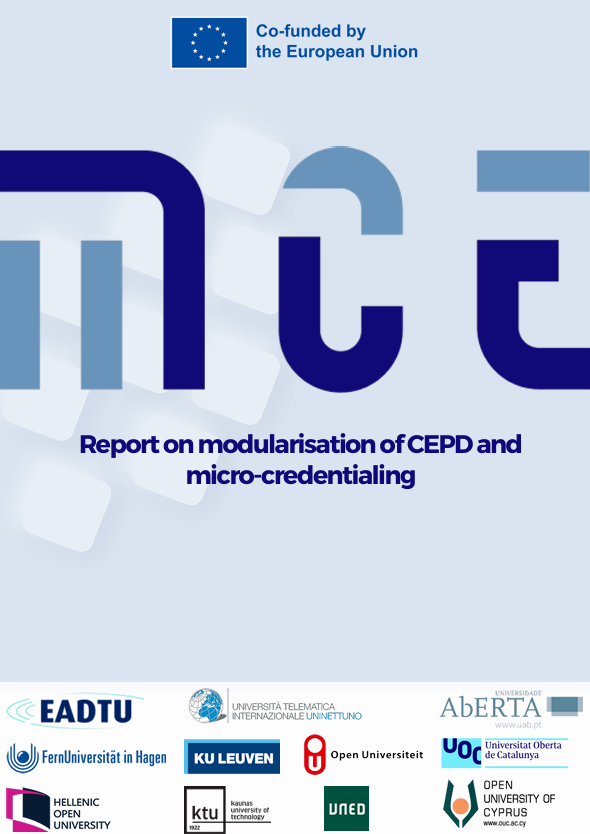
Report on modularisation of CEPD and micro-credentialing
This report investigates the impact of micro credentials on learners, teaching staff and teaching support services (design, development and delivery), university leadership and institutions (institutional organization and conditions), collaboration with external stakeholders, (input for on-site institutional seminars).
Empowering for transformative change
Support university teaching staff, support services and leadership for transformative CEPD and microcredential programs and qualifications, responsive to learners' demands and expectations and aligned with national and European developments and frameworks.
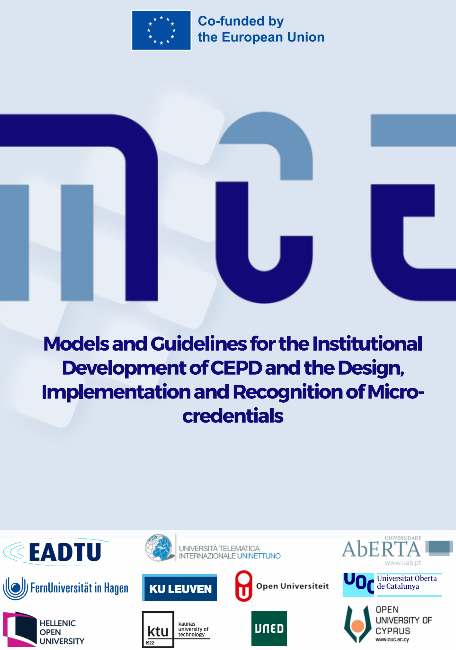
Models and Guidelines for the Institutional Development of CEPD and the Design, Implementation and Recognition of Micro-credentials
This report presents key lessons learned from the seminars and other project activities, outlining guidelines and best practices for implementing micro-credentials based on the experiences of the project’s partner institutions throughout its duration.
Evidence-based recommendations on micro-credentials to national and EU level policy makers
Policy makers at national and EU level base their decision-making on documented reports and on a dialogue with university institutions and seek common alignment with EU developments and frameworks and with a shared vision of the transformation of the university, the objectives of the European Education Area and on Joint Policy in the EHEA. Top-down and bottom-up processes meet each other.
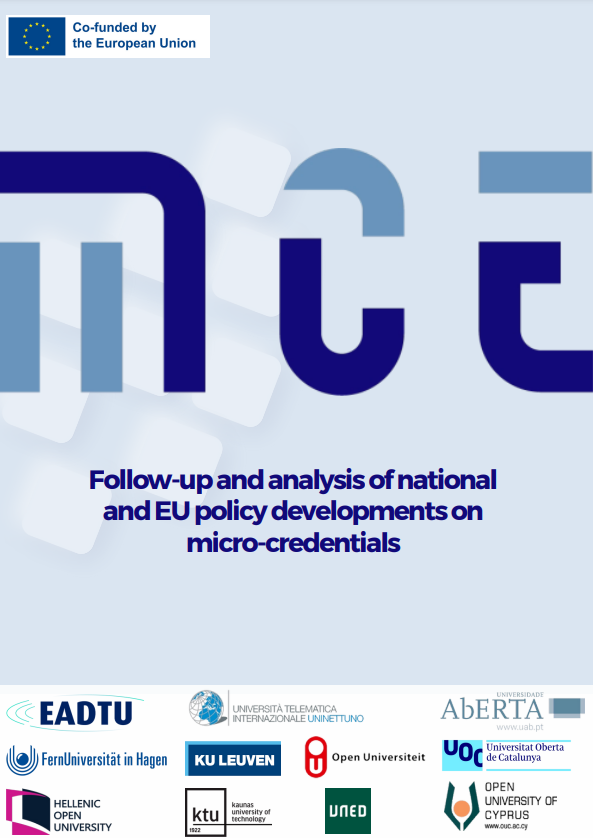
Follow-up and analysis of national and EU policy developments on micro-credentials
Following up and analyzing national and EU policy developments regarding microcredentials and the national and European qualification frameworks, in a perspective of future-oriented continuing education and professional development
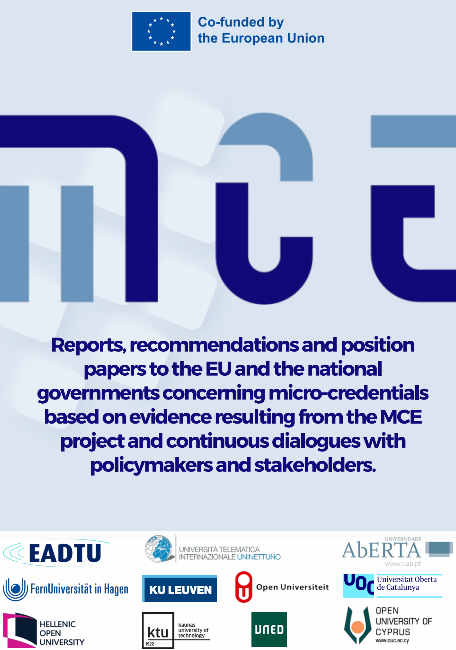
Reports, recommendations and position papers tot he EU and the national governments concerning micro-credetnials based on evidence resulting from the MCE project and continuous dialogues with policymakers and stakeholders
This deliverable aims to discuss and present reflections from the MCE project about the state of policy for Micro-credentials, based on existing published documentation and the initial deliverables of the project.